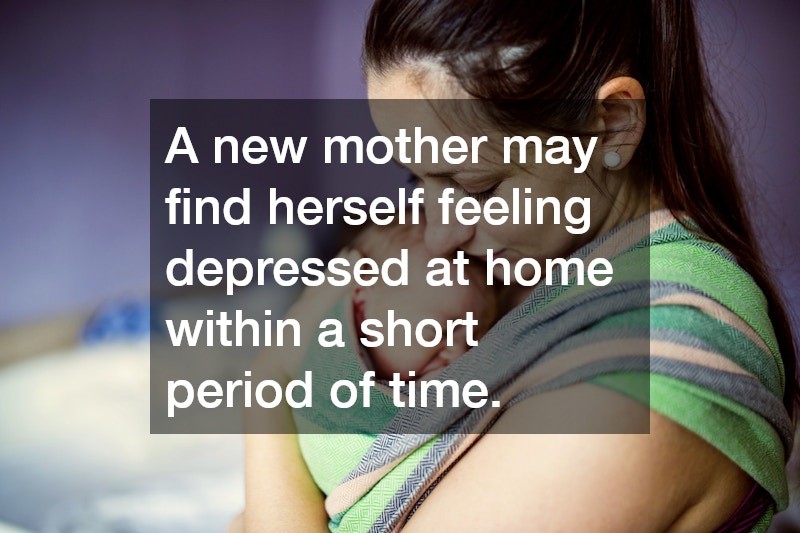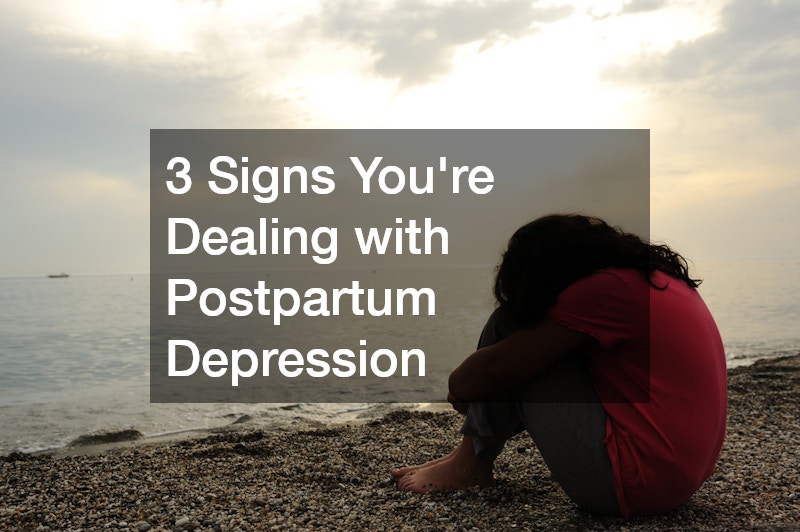Giving birth to a baby is an emotional experience. Most new mothers are initially overjoyed at the sight of their new baby. However, many new mothers may have that joy turn to feelings of sadness after two or three days. This set of experiences is known as postpartum depression.
According to the Cleveland Clinic, medical authorities believe there is a link between hormones and these feelings of postpartum sadness. Since the increase of estrogen and progesterone that accompanies pregnancy begins to fade within two to three days, that hormone change will affect the new mother’s mood. A new mother may find herself feeling depressed at home within a short period of time.
According to the Mayo Clinic, symptoms of postpartum depression may include a decreased appetite after birth. Since the loss of appetite after childbirth will limit the nutritional intake that you need to recover after birth, and since it will also affect your ability to nurse your child, it’s essential to contact your doctor. Once the doctor hears that you’re having a lack of appetite after birth, they may offer tips to restore it with nutritional meal options. If your depression becomes severe, you should also consider using mental health services.
Giving birth to a baby is an emotional experience. Most new mothers are initially overjoyed at the sight of their new baby. However, many new mothers may have that joy turn to feelings of sadness after two or three days. This set of experiences is known as postpartum depression.
According to the Cleveland Clinic, medical authorities believe there is a link between hormones and these feelings of postpartum sadness. Since the increase of estrogen and progesterone that accompanies pregnancy begins to fade within two to three days, that hormone change will affect the new mother’s mood. A new mother may find herself feeling depressed at home within a short period of time.
According to the Mayo Clinic, symptoms of postpartum depression may include a decreased appetite after birth. Since the loss of appetite after childbirth will limit the nutritional intake that you need to recover after birth, and since it will also affect your ability to nurse your child, it’s essential to contact your doctor. Once the doctor hears that you’re having a lack of appetite after birth, they may offer tips to restore it with nutritional meal options. If your depression becomes severe, you should also consider using mental health services.
Giving birth to a baby is an emotional experience. Most new mothers are initially overjoyed at the sight of their new baby. However, many new mothers may have that joy turn to feelings of sadness after two or three days. This set of experiences is known as postpartum depression.
According to the Cleveland Clinic, medical authorities believe there is a link between hormones and these feelings of postpartum sadness. Since the increase of estrogen and progesterone that accompanies pregnancy begins to fade within two to three days, that hormone change will affect the new mother’s mood. A new mother may find herself feeling depressed at home within a short period of time.
According to the Mayo Clinic, symptoms of postpartum depression may include a decreased appetite after birth. Since the loss of appetite after childbirth will limit the nutritional intake that you need to recover after birth, and since it will also affect your ability to nurse your child, it’s essential to contact your doctor. Once the doctor hears that you’re having a lack of appetite after birth, they may offer tips to restore it with nutritional meal options. If your depression becomes severe, you should also consider using mental health services.
For many people, having a new baby is a joyous time. That being said, not every new mother experiences joy after their child is born. If you’re feeling this way after having a baby, you might be experiencing postpartum depression. This condition is normal and happens to many new mothers. Research shows that postpartum depression takes place after about 15% of all births. This is a condition that differs from what’s known as baby blues. Considering that, it’s understandable to wonder you’re dealing with postpartum depression or are just feeling down. Here are three signs you might be dealing with postpartum depression.
- Difficulty Enjoying Spending Time with Your Baby
Almost every parent finds that having a baby is, at times, stressful. This type of stress can make any parent want to take a small break from their infant. However, parents experiencing postpartum depression find it extremely difficult to spend time with their new babies. While it is common with this condition, this is still hard for new parents to experience. - Having Trouble Sleeping
Many new parents learn that having children alters their sleep cycles. Unfortunately, this might last longer than you think. Research shows that most babies are unable to sleep throughout a full night until they reach about 3 months. This can also happen when a baby reaches a weight of about 12 to 13 pounds. Also, babies often experience separation anxiety at around the age of six months. This happens because your baby doesn’t understand that separations are only temporary. All of these situations place an understandable burden on a parent’s sleep. Those experiencing postpartum depression might feel this way regardless of how well their new baby is sleeping. - Feeling Like You’re an Unfit Parent
Feeling depressed often makes people believe they’re inadequate. However, this is rarely the case. Unfortunately, new mothers experiencing postpartum depression often feel they’re inadequate moms. This can wreak havoc on the mind of a new mother. If these feelings persist, it’s wise to consider calling on someone to help you.
In closing, there are several signs you might suffer from postpartum depression. With that in mind, many new moms find it beneficial to work with a doula. Doulas provide help to those welcoming a new baby into their home. You’ll find that doula services aren’t only for first time parents. Doula services work with people from all walks of life who need a little help adjusting to a new member of the family. To be more specific, doula services help clients learn about feeding, sleep, and other baby techniques. Also, doulas assist with helping a parent bond with their new baby.

